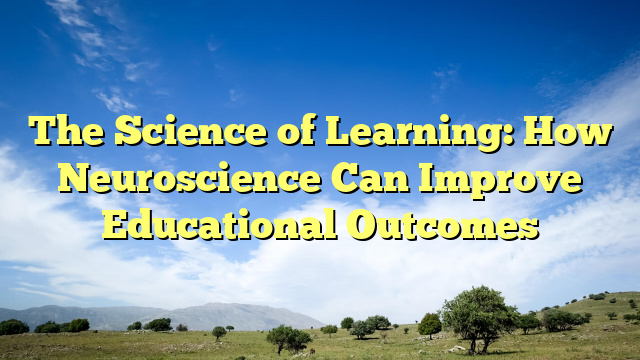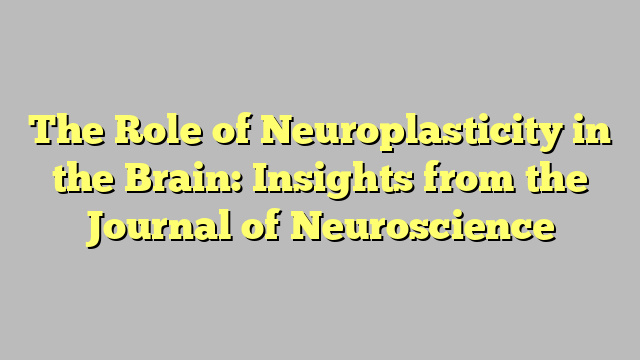Education is a critical aspect of human development, and understanding how the brain learns can significantly improve educational outcomes. Recent advancements in neuroscience have provided valuable insights into how the brain processes information, retains knowledge, and acquires new skills. By integrating these findings into educational practices, teachers and educators can tailor their approaches to better support student learning.
The Role of Neuroscience in Education
Neuroscience explores the inner workings of the brain, including how neurons communicate, form connections, and adapt to new information. By studying these mechanisms, researchers have uncovered key principles that can inform teaching practices and enhance learning experiences. For example, the concept of neuroplasticity highlights the brain's ability to reorganize itself in response to learning and experience. This means that the brain is constantly adapting and changing, making it capable of acquiring new knowledge and skills throughout life.
Applying Neuroscience to Education
One way in which neuroscience can improve educational outcomes is through personalized learning strategies. By understanding how individual brains differ in their learning preferences and abilities, educators can tailor instruction to meet students' diverse needs. For instance, some students may benefit from visual aids, while others may thrive in hands-on activities. By incorporating a variety of teaching methods that align with brain-based learning principles, teachers can create engaging and effective learning environments.
Enhancing Memory and Retention
Neuroscience research has also shed light on how memory works and how to enhance retention. For example, spaced repetition, a learning technique that involves reviewing material at increasing intervals, has been shown to improve long-term memory retention. Additionally, incorporating multisensory experiences, such as combining visual, auditory, and kinesthetic elements, can help strengthen memory formation and retrieval. By incorporating these strategies into lesson plans, educators can facilitate more effective learning and knowledge retention.
The Impact of Stress on Learning
Neuroscience has revealed the detrimental effects of stress on learning and cognitive function. When the brain is in a state of stress, it releases cortisol, a hormone that can impair memory and decision-making. Chronic stress can also lead to structural changes in the brain, particularly in regions responsible for learning and memory. By understanding the impact of stress on the brain, educators can implement strategies to reduce stress in the classroom, such as mindfulness techniques, physical activity, and stress management tools.
Conclusion
Overall, the integration of neuroscience into education has the potential to revolutionize the way we approach teaching and learning. By leveraging insights from brain science, educators can enhance educational outcomes, support diverse learning styles, and create more engaging and effective learning environments. As we continue to uncover the mysteries of the brain, we can harness this knowledge to empower students and optimize their learning potential.
FAQs
How can neuroscience improve educational outcomes?
Neuroscience provides valuable insights into how the brain learns and processes information. By integrating these findings into teaching practices, educators can tailor instruction to meet students' individual needs and enhance learning outcomes.
What are some practical strategies for incorporating neuroscience into education?
Some practical strategies include personalized learning approaches, spaced repetition techniques, multisensory experiences, and stress reduction interventions. By adopting these strategies, educators can create more effective and engaging learning environments.
How can educators stay informed about the latest findings in neuroscience?
Educators can stay informed by seeking professional development opportunities, attending conferences and workshops, and engaging with research publications in the field of neuroscience and education. This ongoing learning process can help educators stay up-to-date on best practices and innovative approaches to teaching and learning.
Unlock Your Mental Potential



